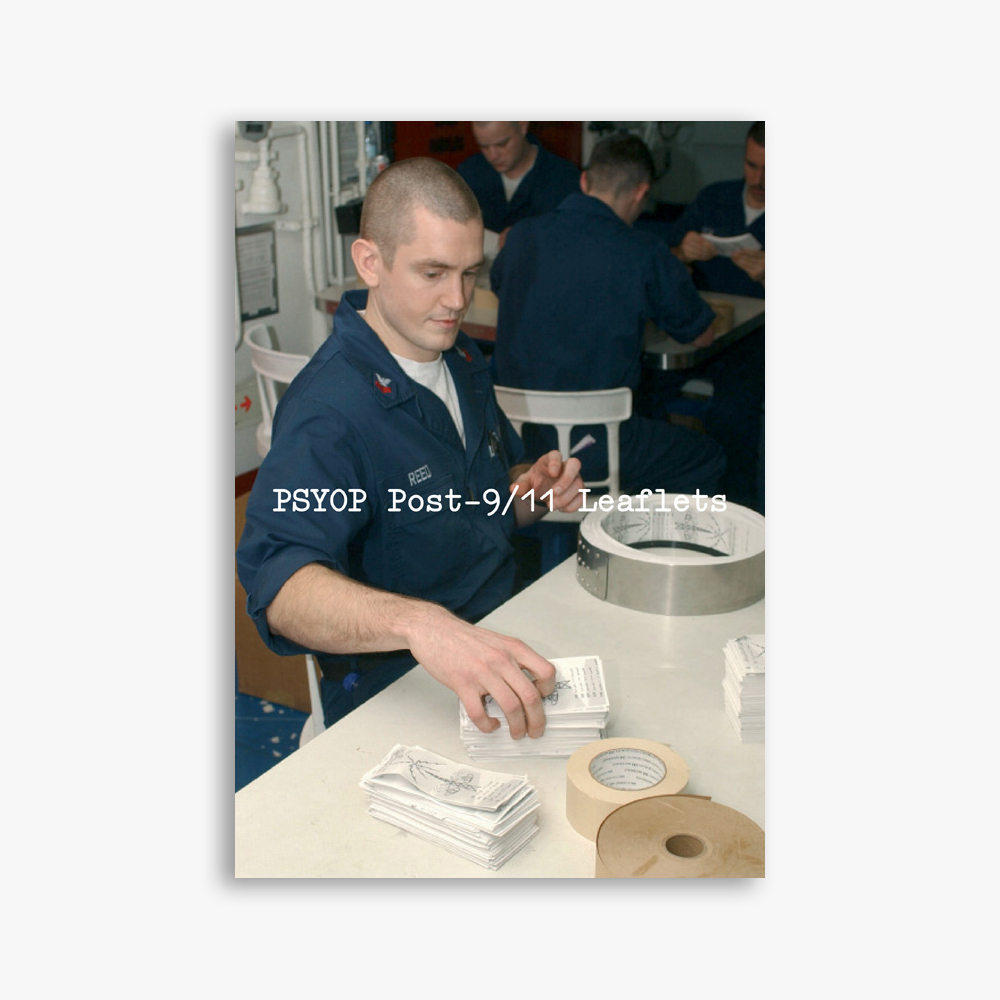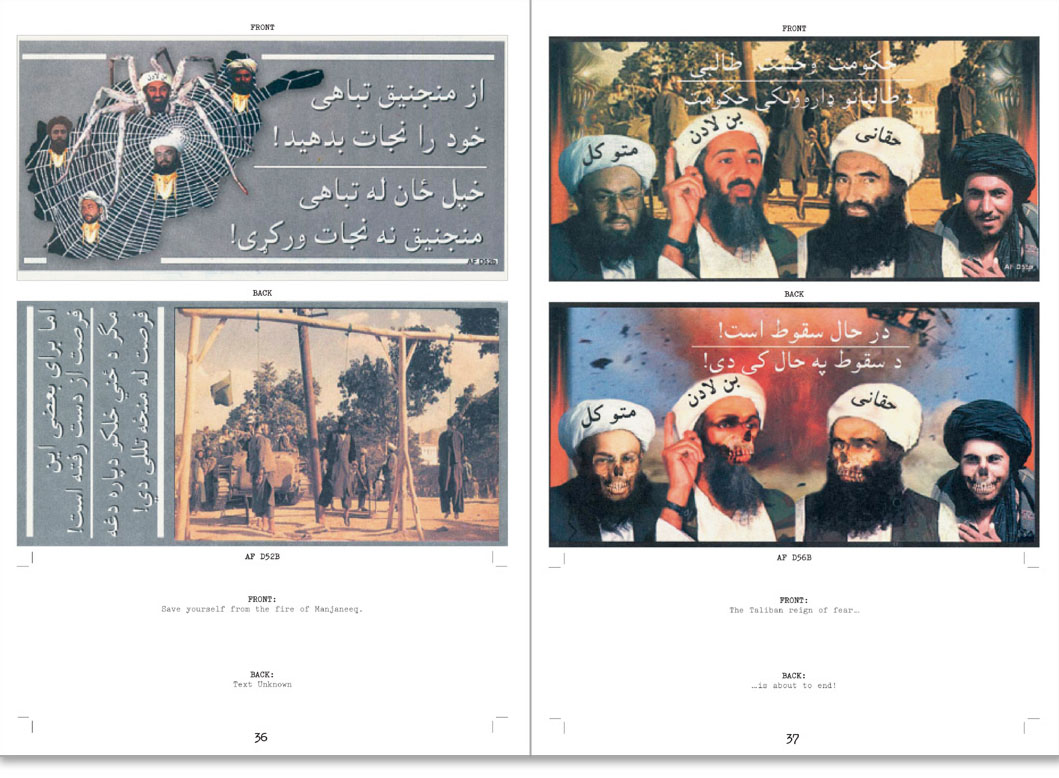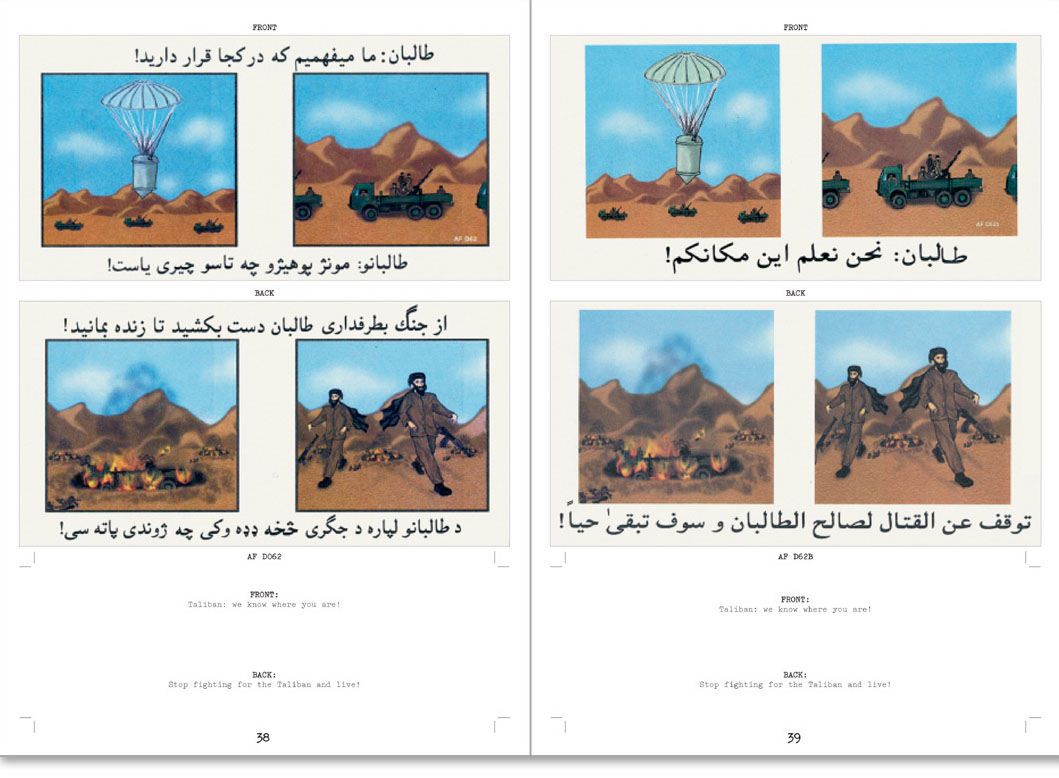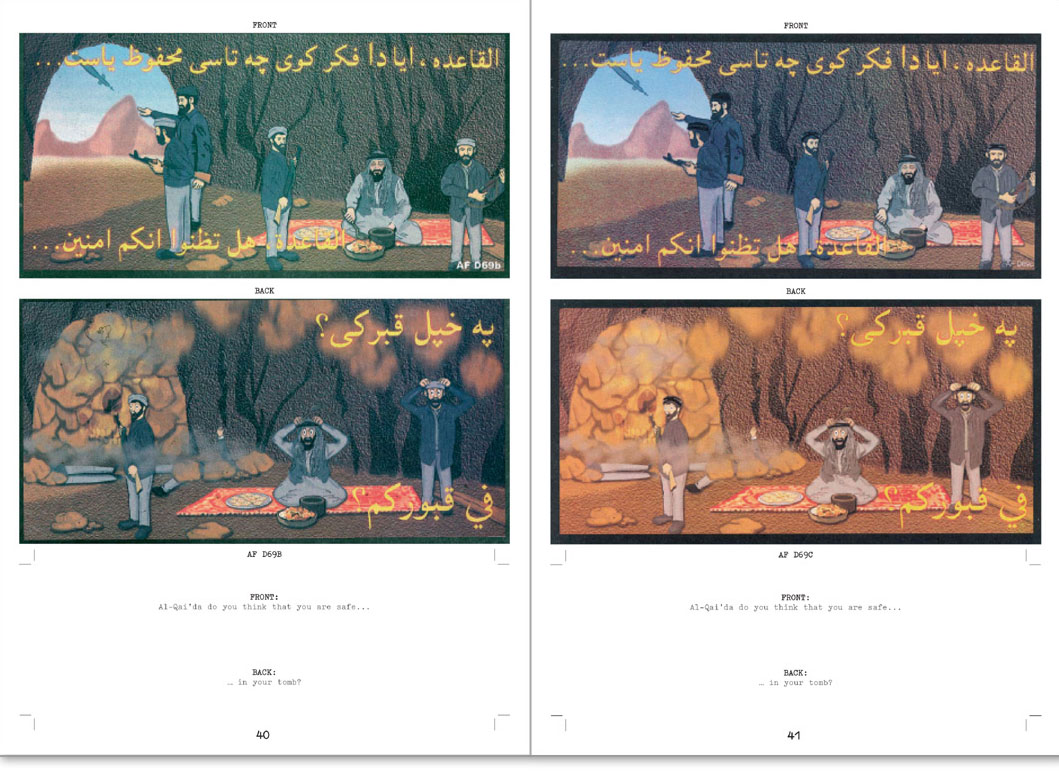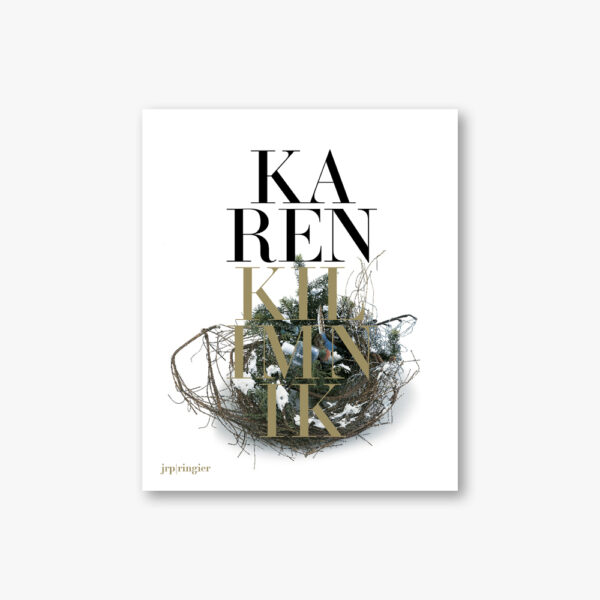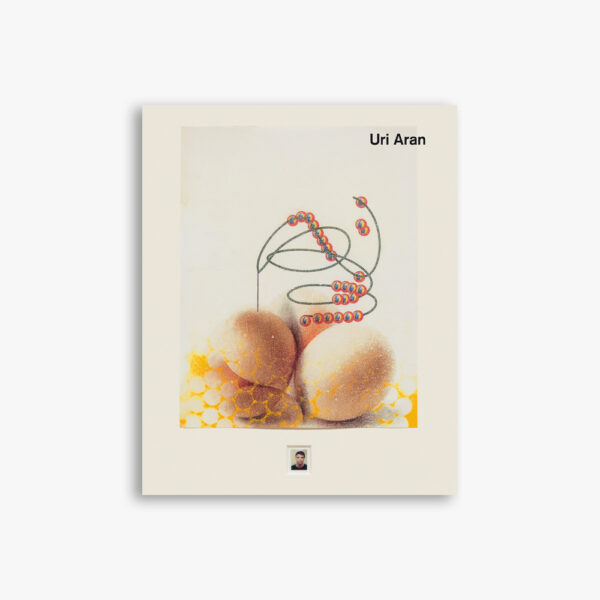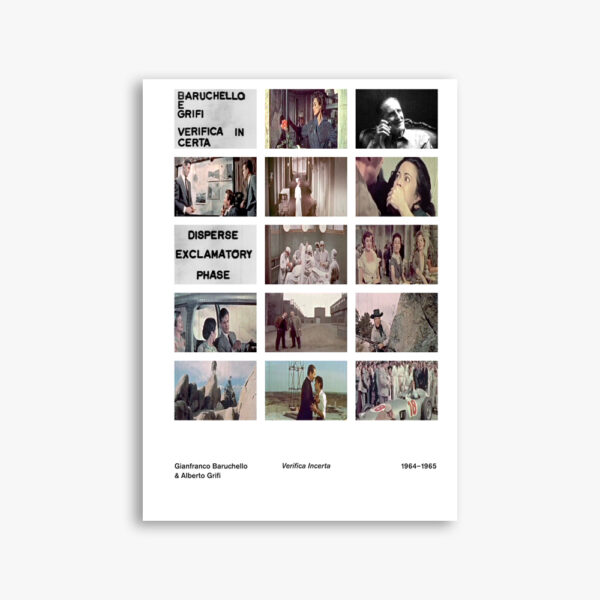| ISBN : | 978-3-905701-12-8 |
|---|---|
| Publication : | September 2005 |
| Order from : |
PSYOP–Post 9/11 Leaflets
| Collection : | |
|---|---|
| Editor(s) : | |
| Cover type : | Softcover |
| Dimensions : | 165 x 235 mm |
| Pages : | 144 |
| Pictures : | 132 colors |
| Price : | CHF29 / €19 / £13 / $22 |
| PRINT PDF | |
Insight into the propaganda strategies of the US Army

High Quality Art

Worldwide Shipping

Dealing with care

Secure payment
description
Insight into the propaganda strategies of the US Army
An artist’s book project on military “psychological operations.” A collection of over 120 propaganda leaflets that have been dropped by the US Army on Afghanistan and Iraq, as well as other similar material.
Based exclusively on material found on the Internet, this publication gives a wide-ranging insight into the propaganda strategies that the American army has adopted in the Near East since September 11. “Operation Enduring Freedom” and “Operation Iraqi Freedom,” as the wars against Afghanistan and Iraq were called, in fact make massive use of propaganda. The “leaflets” play a central role in the attempt to influence minds and change opinions. Today millions of leaflets are being dropped on these countries, almost like manna falling from heaven.
The book is part of the “PSYOP—Capture their minds and their hearts and souls will follow” project, which Christoph Büchel and Giovanni Carmine have carried out for the 7th Biennale of Sharjah (United Arab Emirates). The publication sees itself as a collection and classification of documentary material and does not adopt an ideological stance. Thus an introductory training text issued by the US Army gives important technical and content-related information on the writing and use of leaflets. The collection of over 120 examples that follow demonstrates how complex and elaborate these military “psychological operations” are, at the level of both design and content.
Edited by Swiss artist Christoph Büchel and curator/critic Giovanni Carmine.
